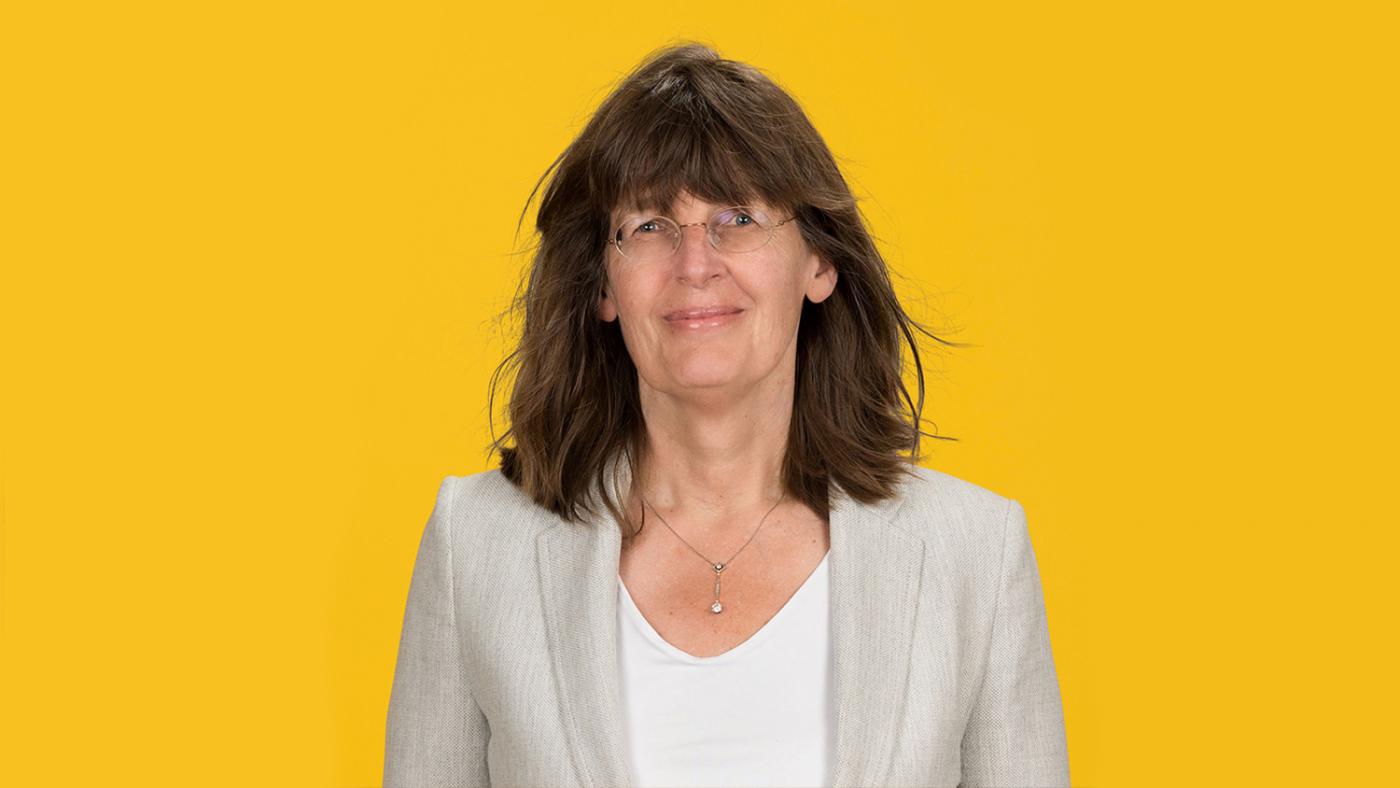Professor Els Stronks pleads for better language education
'Reading crisis affects the university too'

Usually, when Professor Els Stronks engages in public debates about reading education in the Netherlands, the conversation is about primary and secondary schools. After all, many are worried about those levels. In May 2022, the Minister of Education for those levels, Dennis Wiersma, unveiled a master plan on basic skills. In his view, too many pupils leave the educational system without fully mastering reading and writing skills.
Stronks, who collaborates with the master plan through several projects, recognises the consequences of these shortcomings among her own students at UU: "We know that university students have poor language skills too. The minister himself acknowledged that about four years ago."
Fundamental problem
Since being appointed as a professor in 2011, Stronks has become more and more involved with the state of reading education at Dutch schools. At first, she engaged with the issue from the viewpoint of her discipline, early Dutch literature. Slowly but surely, she became an important voice in the public debate about the so-called "reading crisis". So much so that she ended up editing a book titled Because reading pays off (Original: Omdat lezen loont, Ed.).
Her initial goal was to make sure that knowledge from her discipline made its way to school children. That's why she developed reading materials such as the website LitLab.nl. The more time she spent with teachers and pupils, the clearer it became to her that there is something fundamentally wrong with reading education in the Netherlands.
“I thought: we need to use LitLab.nl to find a way to get more up-to-date knowledge to schools and turn pupils into investigative readers. But the more I saw, the more I became aware of the complaints and issues, which include the fact that teachers and pupils simply don’t like the course. But another thing is that the results are very poor. The core issue for me is that pupils don’t learn to study what a text actually says as they read.”

Els Stronks. Photo: Utrecht University
Declining results
Stronks refers to several international comparative studies that show that the reading skills of Dutch children have dropped in comparison to children in other countries. Of all the countries analysed in the Pirls study, the reading proficiency scores of primary school pupils only dropped in France and the Netherlands in the period between 2001 and 2016.
The latest edition of the European Pisa study, published in 2018, confirms that the reading proficiency of fifteen-year-olds in the Netherlands has been dropping more rapidly since 2015. A significant percentage of Dutch pupils score particularly poorly when it comes to evaluating and reflecting on texts.
Asked to specify what she means by reflecting on texts, Stronks explains how to test someone's reading comprehension, even among young children. “Imagine you’re reading about a rabbit who derives his identity from a blue jacket. He’s always got his blue jacket, it means a lot to him. If researchers then manipulate the text, making the rabbit wear a green jacket instead, and the child notices the change, then the researchers can assume that the child understood what they read. But that's exactly what Dutch children seem to be bad at.”
Stronks says that Dutch children often fail to comprehend exactly what they’re reading because they’re taught to look at the structure of the text above all else. “We were suspecting that reading education in the Netherlands focuses too much on text structures and not enough on processing what you read.”
“Twenty years ago", the professor continues, "the correct conclusion was drawn that experienced readers work a lot with the text's structure. When an experienced reader starts reading a text, they immediately look for a conclusion. You can tell the beginning apart from the rest of the text and you know there’s probably a hypothesis somewhere. That’s good knowledge that helps them navigate through a text quickly.”
However, Stronks says that, although correct, this conclusion has been turned into a "social experiment" with terrible consequences. “People thought: 'let's base our didactics on this, let's teach our early readers this'. In theory, that was a good thought but they made two mistakes: the first one is offering too much of it. Studies have found that teaching these skills does help but six weeks is all it takes to obtain the maximum effect from this type of education. The second mistake was to think it was enough.”
More attention to culture
As a result of this emphasis on structure, Dutch pupils don't develop the competency of reflecting on the content of a text, affirms Stronks. “This basically calls for the recalibration of the entire discipline. It's like they say: 'the surgery has been successful but the patient died.’”
Personally, Stronks finds that reading education should be more focused on culture and how it influences the way we assign meaning to texts, whether they have been written by others or ourselves.
“The main issue is that our language education does not encompass culture anymore. Language skills people go 'here's a text, it was made to be understood' while culture people look at the text as something readers will assign meaning to, and that meaning can be different from what the author intended. They’re much more interested in how the process of assigning meaning to texts comes to life since they are culturally defined, teachable and learnable.”
What the university can do
Many Dutch people whose education was based on this paradigm are now at university and Stronks has been noticing a decline in reading skills among her own students.
“I’ve been teaching for quite some time and one of the things I've noticed is that students are having a harder time engaging in discussions with each other now. They use the teacher as a medium instead. I guess they haven’t been trained as much in having in-depth debates like 'what do these texts really say?', 'How do others interpret these texts?' and 'what can I learn from this?'”
She mentions a recent campaign by the organisation for better advertising (best known by its Dutch acronym Sire, Ed.), which featured a commercial showing two people trying to find common ground. One of them is a climate activist, the other isn’t.
“At a small scale, that’s what's happening among academic students. They're not deploying as much their capability of using language as an instrument to dissect issues and then solve them together. That’s because dissecting issues has a cultural side too. If you only look at the shape, you will be done rather quickly, but the cultural side – why things are the way they are – is often more abstract, vague, complicated, and personal.”
“Utrecht University has been using the principle of activating didactics for a long time, and a lot is being done with it, but we could get more out of the discussion as an active education model,” Stronks proposes. “Put those minds to work and make sure there’s lots of crunching and creaking going on in those minds so that they use language as they argue and reason. That’s key."
One thing Stronks does sometimes is deliberately slow down her students’ learning process, dividing it into four parts: responding, understanding, analysing, and interpreting. “I usually ask what students have read and then get all four of them at the same time. Some people will comment things like ‘this is incomprehensible, I can’t follow this article at all’ or ‘this is the first article I’ve read that I can actually use’. There are also those who say things like ‘These arguments just don’t make sense’, or ‘I don’t think this method is any good’. Everything is added on top of everything, so it can be helpful to split things up for didactics' sake.”
Creative writing
In addition, Stronks points to solutions from abroad. She taught at an American university for a year, where the school system pays more attention to meaning attribution than the Dutch one.
“In the 1930s, many English-language universities started doing something that is now called creative writing. They basically thought: 'if academic students are better at writing, their scientific work will improve too. ‘Better’ here mainly means more comprehensive, so they are not only encouraged to write argumentative texts but also creative genres that focus on one's imagination, such as novels or poems. This is guided by that same idea about the power of reason.”
In her view, the power of reason is crucial. “If you’re good at finding words for your thoughts – and that’s what someone who does creative writing tries to do – it’s likely that the thoughts themselves will improve, too.”